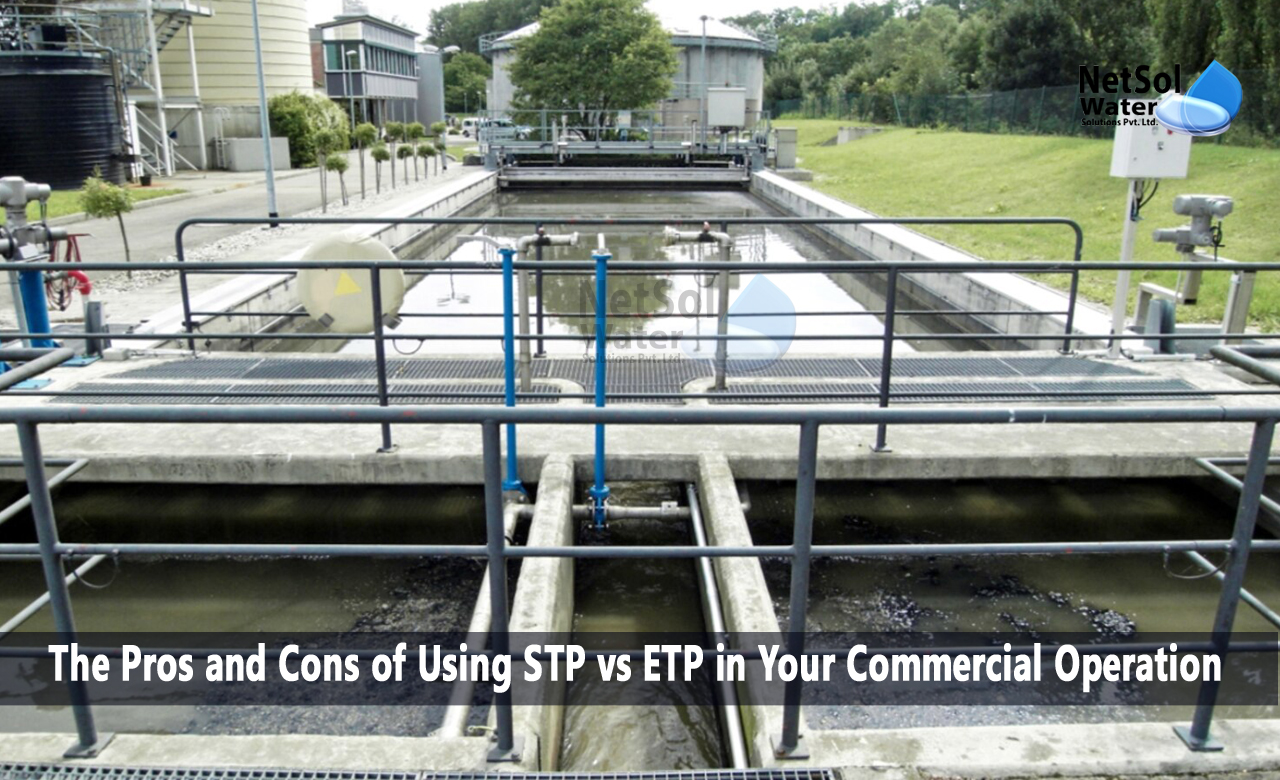The Pros and Cons of Using STP vs ETP in Your Commercial Operation
Sewage treatment plants (STP) and effluent treatment plants (ETP) are essential components of any commercial operation that generates wastewater. Both these treatment plants are designed to treat and purify water before discharging it back into the environment. However, STP and ETP have their unique advantages and disadvantages, and choosing the right one for your commercial operation can be a challenging task.
In this blog, we will discuss the pros and cons of using STP vs ETP in your commercial operation.
Pros of using STP:
- Cost-effective: STP is generally less expensive to build and operate than ETP. STP requires less equipment, and the treatment process is less complex than ETP.
- Suitable for domestic wastewater: STP is ideal for treating domestic wastewater generated by commercial establishments like hotels, restaurants, and hospitals.
- Smaller footprint: STP requires a smaller footprint than ETP and can be installed in areas with limited space.
- Reduced sludge generation: The treatment process in STP generates less sludge than ETP, reducing disposal costs.
Cons of using STP:
- Limited treatment capabilities: STP may not be suitable for treating wastewater generated by certain industries that produce toxic or hazardous wastewater.
- Limited treatment efficiency: STP is less efficient than ETP in removing pollutants like heavy metals and organic compounds.
- Limited water reuse potential: The treated water from STP may not be suitable for reuse in non-potable applications like irrigation or industrial processes.
Pros of using ETP:
- Efficient treatment process: ETP is capable of removing a wide range of pollutants, including heavy metals and organic compounds, making it suitable for treating wastewater generated by different industries.
- High treatment efficiency: ETP is highly efficient in removing pollutants from wastewater, ensuring the safe discharge of treated water back into the environment.
- Potential for water reuse: The treated water from ETP can be reused in non-potable applications like irrigation or industrial processes, reducing the demand for fresh water.
- Compliance with regulations: ETP helps commercial establishments comply with environmental regulations and avoid legal liabilities and penalties.
Cons of using ETP:
- High cost: ETP is generally more expensive to build and operate than STP due to its complex treatment process and the need for additional equipment.
- Larger footprint: ETP requires a larger footprint than STP and may not be suitable for areas with limited space.
- Complex maintenance: The treatment process in ETP is complex, requiring skilled technicians to operate and maintain the plant.
Conclusion:
In conclusion, choosing between STP and ETP for your commercial operation depends on various factors like the type of wastewater generated, the treatment efficiency required, the available space, and the budget. While STP is cost-effective and suitable for treating domestic wastewater, ETP is more efficient in removing pollutants and suitable for treating wastewater generated by different industries. However, ETP is more expensive to build and operate than STP and requires a larger footprint. Ultimately, the decision to use STP or ETP should be based on the specific needs and requirements of your commercial operation.
For any other support, inquiries, or product purchases, call on +91-9650608473 or email at enquiry@netsolwater.com



